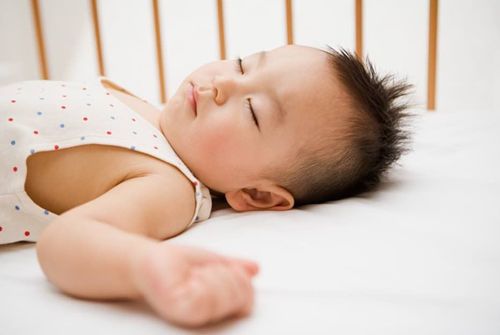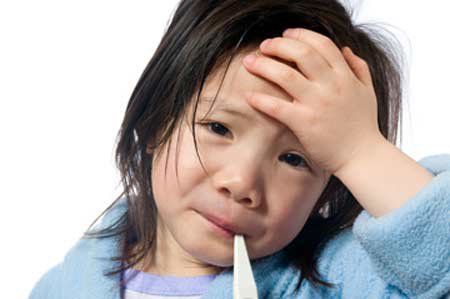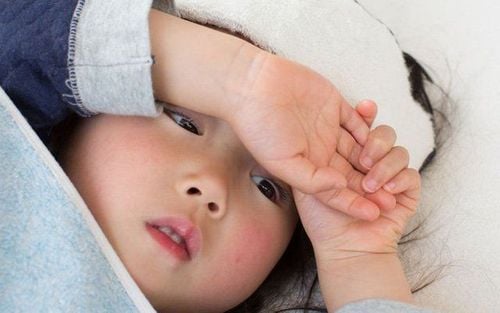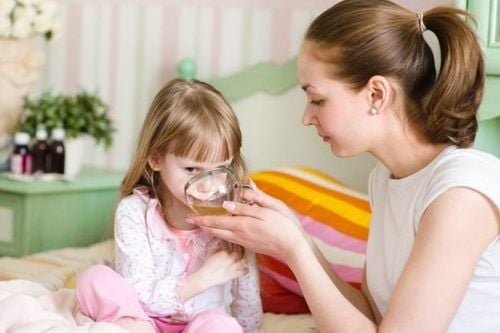This is an automatically translated article.
The article was professionally consulted by resident Doctor Duong Van Sy - Department of Pediatrics - Neonatology - Vinmec Hai Phong International General Hospital. Doctor has 09 years of experience in the field of Pediatrics.Viral respiratory infections, including colds and flu. Cases can occur peak in winter. So parents, take these simple steps to fight germs and help keep your kids healthy and fight off these viral pathogens as best they can.
1. Are children prone to colds or flu in winter?
Children are the object of need to be taken care of more carefully in winter and there are many measures to prevent colds for children. Many children get respiratory viral infections, including colds and flu. Flu season usually peaks from December to February. This increases the chance of everyone in your household coming into contact with someone who is sick and potentially contagious.Paul Offit, professor of pediatrics in the Department of Infectious Diseases, said: “Many common winter viruses are airborne, so if children breathe within 1.2 to 1.8 meters of an infected person, they could easily contract the illness caused by that person's virus."
Furthermore, people who have a cold or flu are often contagious before they develop symptoms. So while it's good to keep children away from anyone who is sneezing, coughing or sneezing, it's not enough to protect them from getting sick from these causes.

Nhiều trẻ em bị nhiễm virus đường hô hấp vào mùa đông
2. How can I keep my baby, preschooler or older child from getting sick in the winter?
Here are some measures that can be taken to help children fight germs:2.1. Wash your hands Washing your hands often is the simplest and most effective way to get rid of cold and flu germs. Wash your hands thoroughly with 20 seconds of scrubbing with soap and water and as often as you go out and back home, after wiping your child's nose and before preparing food. You should also ask anyone who cares for children, including babysitters and child care workers, to practice good hand washing. Washing hands for children and teaching older children to wash their own hands will be the best way to help children prevent communicable diseases. Wash your baby or young child's hands often, especially before eating (when they are eating solid foods) and when they return home from daycare or when going out. Children under the age of two can begin to learn how to wash their hands on their own, although they may need help from an adult. Note: No need to buy fancy antibacterial soaps. In fact, the Food and Drug Administration (FDA) recommends skipping antibacterial soaps in favor of using regular soap and water. Because, to date, there is no evidence that antibacterial soaps are beneficial in killing bacteria, and even researchers have concerns that they may have a negative impact on the long-term health of people. both children and adults. Always carry hand sanitizer with you. For situations where soap and water are not available, you and your child should use a hand sanitizer with at least 60% alcohol. Then wash your hands and your child's as soon as possible. 2.2. Teach children not to touch their eyes or nose At any point, unwashed human hands are covered with thousands of germs. When a child rubs his or her eyes or nose, they bring the germs on their hands into direct contact with their mucous membranes, where the germs are likely to be rapidly and simultaneously absorbed into the bloodstream. Parents should remind children not to touch their eyes or rub their nose. Teach your child to use a tissue instead, or at least if a tissue isn't available he can use a clean sleeve to dab his stinging eyes or itchy nose.
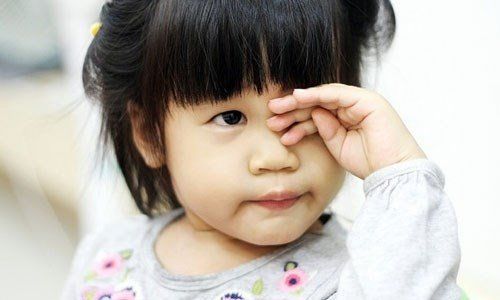
Cha mẹ nên nhắc nhớ trẻ không chạm vào mắt hoặc dụi mũi khi chưa rửa sạch tay
2.4. Clean pacifiers and toys for babies and young children to put most things in their mouths is completely normal. Therefore, parents should regularly clean pacifiers as well as children's toys to minimize the transmission of viruses to children from the surrounding environment. Regular cleaning of children's toys also helps limit spread the virus to other children playing with your child's toys.
2.5. Check the "sick child" policy If a child is in day care, learn about policies for keeping sick children away from healthy children. Many facilities require children with fever, flu, vomiting, diarrhea, or eye infection to stay at home, to avoid the situation that children going to school will spread the disease to other classmates. If you notice children who are clearly sick at daycare, talk to caregivers about enforcing the rules. These kids are contagious before their symptoms appear, but you don't want them sneezing or coughing around your child when they're already clearly sick.
2.6. Get your baby vaccinated You can help protect your baby against certain viruses and bacteria simply by making sure that your child's immunizations are up to date and getting a flu shot every year at 6 months of age.
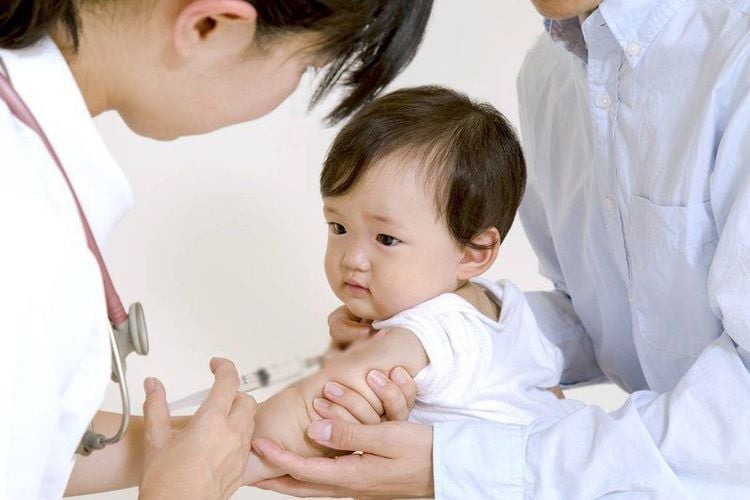
Đưa trẻ đi tiêm phòng giúp bé tránh khỏi một số loại virus và vi khuẩn đơn giản
3. How to naturally strengthen children's immunity?
Just like adults, diet, sleep, and exercise affect a child's overall health and resistance to disease. For babies, breast milk offers unique health benefits. Therefore, mothers should not ignore this source of protection for babiesBreastfeeding, whenever possible. Breastfeeding protects your baby from disease. Healthy diet. Once your baby has solids, offer a variety of nutritious foods. Sleep. Make sure your child gets enough sleep. Do exercise. Providing a lot of opportunities for children to be physically active helps to strengthen their resistance as well as increase their immune system.
4. How does secondhand smoke affect a child's immunity?
Parents should keep children away from secondhand smoke which can reduce the risk of respiratory problems including colds, coughs and pneumonia as well as ear infections, severe asthma and sudden infant death syndrome. (SIDS) in neonates. Furthermore, parents need to create a smoke-free environment for their homes and vehicles, and keep children away from people who are smoking.
Tránh xa khói thuốc giúp trẻ giảm nguy cơ mắc các vấn đề về hô hấp
5. What to do when your child is sick with a virus
Since the average child gets eight to 10 colds a year, it is certain that he or she will catch some virus no matter how hard you try to prevent it. When that happens there are a few ways to help with winter care to keep the virus away:Try these safe home baby care remedies to help keep them comfortable until the virus kicks in inhibited by other organs of the body. Call the doctor if your child has related symptoms such as fussiness or an unusual temper, or something is wrong. When you are taking care of a sick child, comfort the child to reassure him and make him feel better. As most winter illnesses will pass in a week or so. Plus, they all boost a child's immune system and over time, they'll get sick less and less often. In the meantime, parents should always instruct children to continue to practice hand washing. This will be best to keep the child away from the virus that causes illness. In addition, in order to prevent diseases that babies often get, parents should pay attention to a diet to improve the child's resistance. At the same time, add supporting foods containing lysine, essential micro-minerals and vitamins such as zinc, chromium, selenium, B vitamins,... snacks and less digestive problems.
Parents can learn more:
Why do you need to supplement Lysine for your baby?
The role of zinc - Guidelines for reasonable zinc supplementation
Please visit the website Vinmec.com regularly and update useful information to take care of your baby and family.
Reference source: babycenter.com





